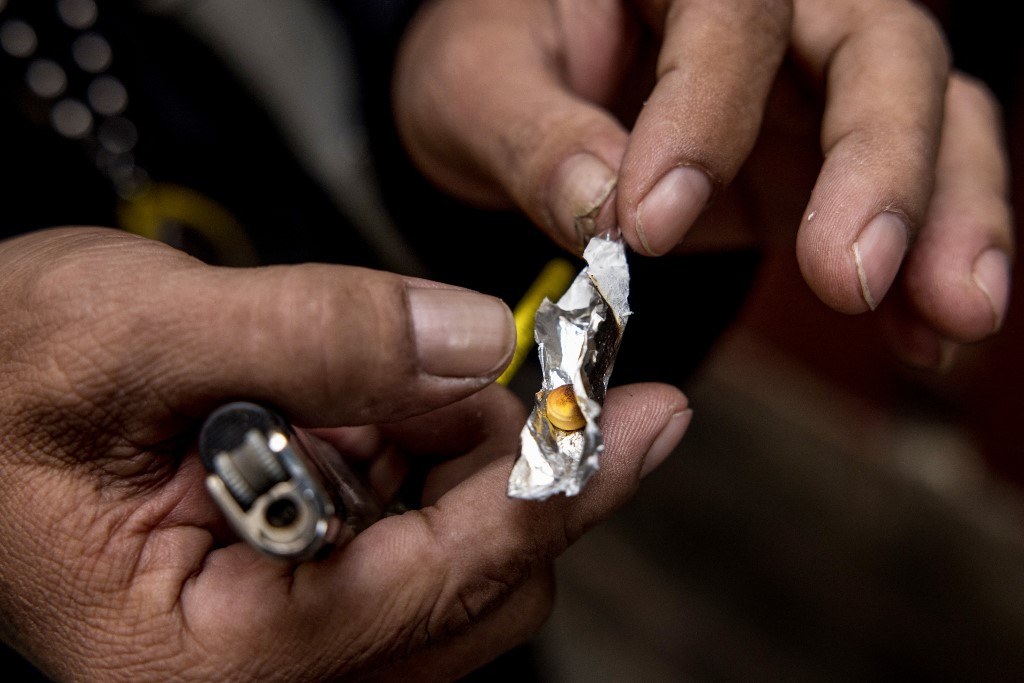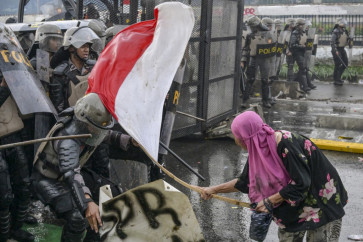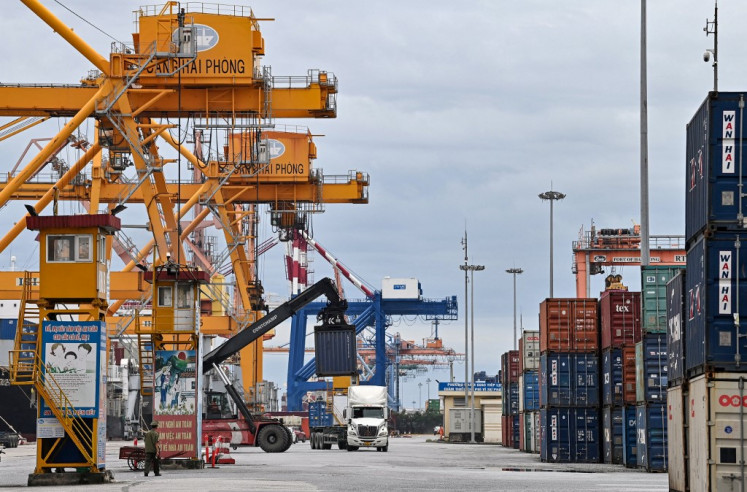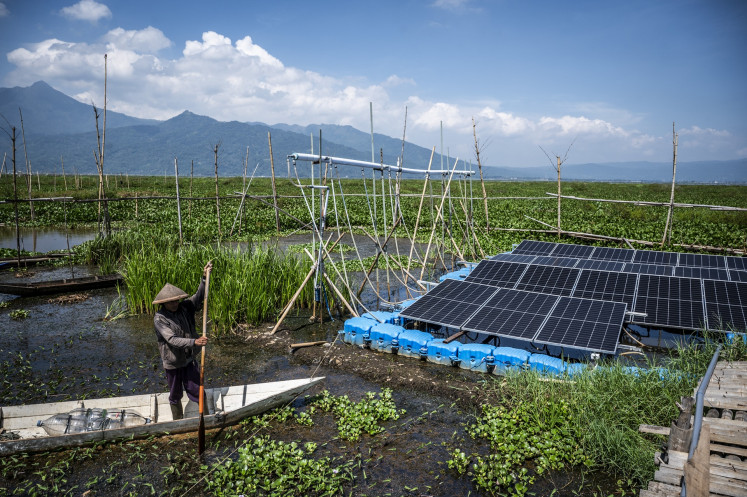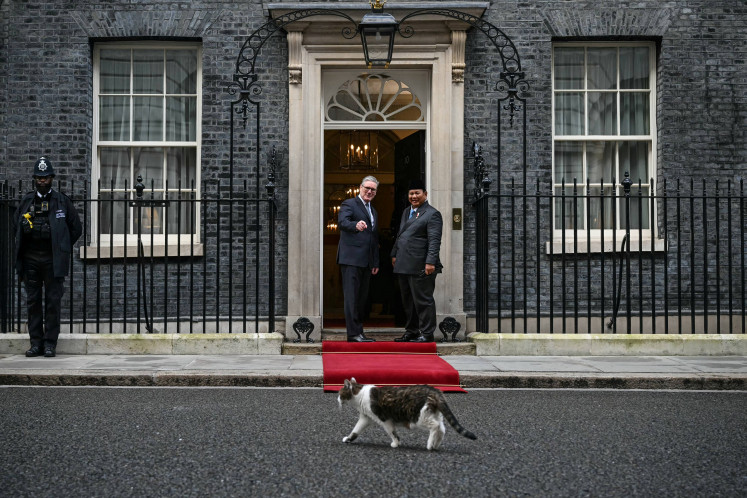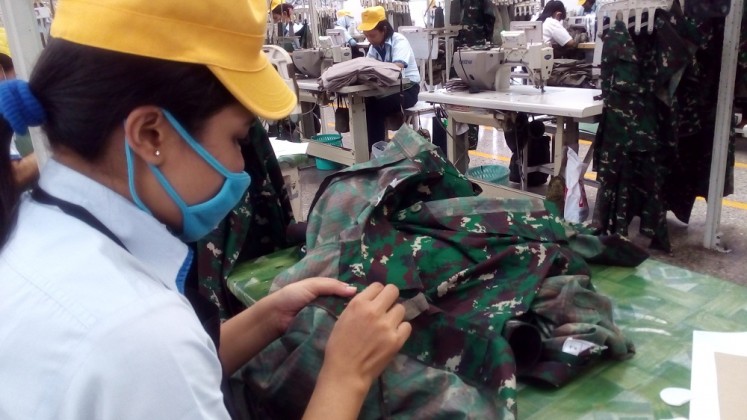Popular Reads
Top Results
Can't find what you're looking for?
View all search resultsPopular Reads
Top Results
Can't find what you're looking for?
View all search resultsCheap methamphetamine is fueling Thailand’s addiction crisis
With its low price, intense effects and highly addictive nature, yaba is one of the most commonly abused stimulants in Southeast Asia, and its spread shows no sign of slowing.
Change text size
Gift Premium Articles
to Anyone
Y
aba, a cheap and potent methamphetamine-caffeine pill often dubbed “crazy medicine”, has become one of Thailand’s most pressing public health crises. Easy to produce and widely available, yaba is used by everyone from factory workers seeking stamina to partygoers chasing a high.
With its low price, intense effects and highly addictive nature, yaba is one of the most commonly abused stimulants in Southeast Asia, and its spread shows no sign of slowing. Yaba’s rapid rise over the past 30 years as a street drug marks a troubling evolution.
Originally introduced to East Asia during World War II to enhance soldiers’ endurance, methamphetamine has become known as “nazi speed” in some circles. And what began as a wartime stimulant is now at the heart of a regional addiction crisis.
A typical yaba pill contains around 30 percent methamphetamine. When mixed with caffeine it acts as a powerful central nervous system stimulant. The drug delivers a quick and intense burst of energy, euphoria and heightened alertness, often accompanied by reduced appetite.
Users often crush and smoke the pills, though some swallow them whole. The high lasts for hours, followed by a comedown marked by exhaustion, insomnia and paranoia.
Despite its dangers, yaba is alarmingly accessible. In some areas, a single pill costs as little as 13 US cents, making it available to the region’s poorest and most vulnerable. Yaba is now the most widely abused form of methamphetamine in Thailand and its neighboring countries, including Laos, Cambodia and Vietnam. Its use is particularly prevalent among young people, and its popularity is rapidly growing.
The golden triangle, where Myanmar, Thailand and Laos meet, has long been notorious for its role in the global opium trade. But today, it is at the heart of Asia’s methamphetamine crisis.
According to the United Nations, the production and trafficking of synthetic drugs in the region have grown exponentially, with methamphetamine seizures in 2024 hitting a record 236 tonnes, a 24 percent increase.
Much of this production is centered in Myanmar’s Shan state, where ongoing conflict has created the ideal conditions for industrial-scale drug operations. Armed groups, often relying on drug profits to fund their military activities, operate in regions beyond government control. These lawless areas, combined with relative stability in others, have allowed for the large-scale manufacturing of yaba and other methamphetamines.
Thailand continues to serve as both a primary transit route and an end market for yaba. In 2024, Thai authorities seized over 139 million yaba pills. But despite record-breaking seizures, the actual volume of yaba reaching the streets is believed to be far higher, highlighting the limitations of enforcement efforts alone.
While Thailand leads the region in drug seizures, efforts are outpaced by the scale of the trade. Smugglers, often armed, transport hundreds of thousands of pills at a time, exploiting porous borders, particularly between Thailand and Myanmar. Thai authorities find themselves in a constant game of whack-a-mole. When they shut down one trafficking route another quickly emerges.
Meanwhile, trafficking routes are diversifying. New land corridors now link Myanmar with Cambodia through Laos, while maritime networks are expanding across Malaysia, Indonesia and the Philippines. These changes have turned a local problem into a transnational crisis.
Thailand’s response to the yaba crisis has been a mix of hardline enforcement and hesitant reform, with mixed results. A controversial policy has allowed possession of up to five yaba tablets, distinguishing users from traffickers.
A government-backed proposal to cut this to one tablet has been approved in principle and is awaiting enactment. So, the five-pill rule is still in force. Though a step toward decriminalization, it is a policy which has failed to offer a coherent strategy for treating addiction.
Indeed, investment in drug treatment and harm reduction has been sluggish. Formal rehabilitation services remain scarce and unevenly distributed. Without accessible, evidence-based support, many users end up cycling between incarceration and relapse.
In the absence of government-led solutions, some communities have turned to grassroots alternatives. Across Thailand, Buddhist monasteries have become unlikely centres of detox, blending ritual with rudimentary treatments.
These detox programs often involve communal steam baths followed by the ingestion of a secret herbal concoction that is said to purge toxins through vomiting. Though lacking clinical oversight, they offer discipline and belonging for those with nowhere else to turn.
Yaba’s rapid spread is not just Thailand’s problem but a symptom of a broader, global failure. Conflict-driven economies, porous borders and the worldwide demand for cheap synthetic drugs have created the perfect conditions for yaba to thrive. When chemicals are easily sourced, production is decentralized and law enforcement is overwhelmed, illicit drug markets grow faster than they can be contained.
Thailand’s experience highlights the shortcomings of the decades-long “war on drugs”. Despite record seizures and intensified enforcement efforts, the yaba trade continues to expand. It is cheaper, faster and more deadly than before. Criminal networks adapt faster than authorities can act, while users are often criminalized rather than supported.
What is needed now is not more punishment, but a serious, coordinated effort that includes public health infrastructure and evidence-based harm reduction strategies.
Buddhist monasteries should not have to serve as a stand-in for state-funded addiction treatment. The resurgence of the golden triangle as a global synthetic drug hub is a warning that the world cannot afford to ignore.
---
The writer is a senior lecturer in criminology at Swansea University. The article is republished under a Creative Commons license.

